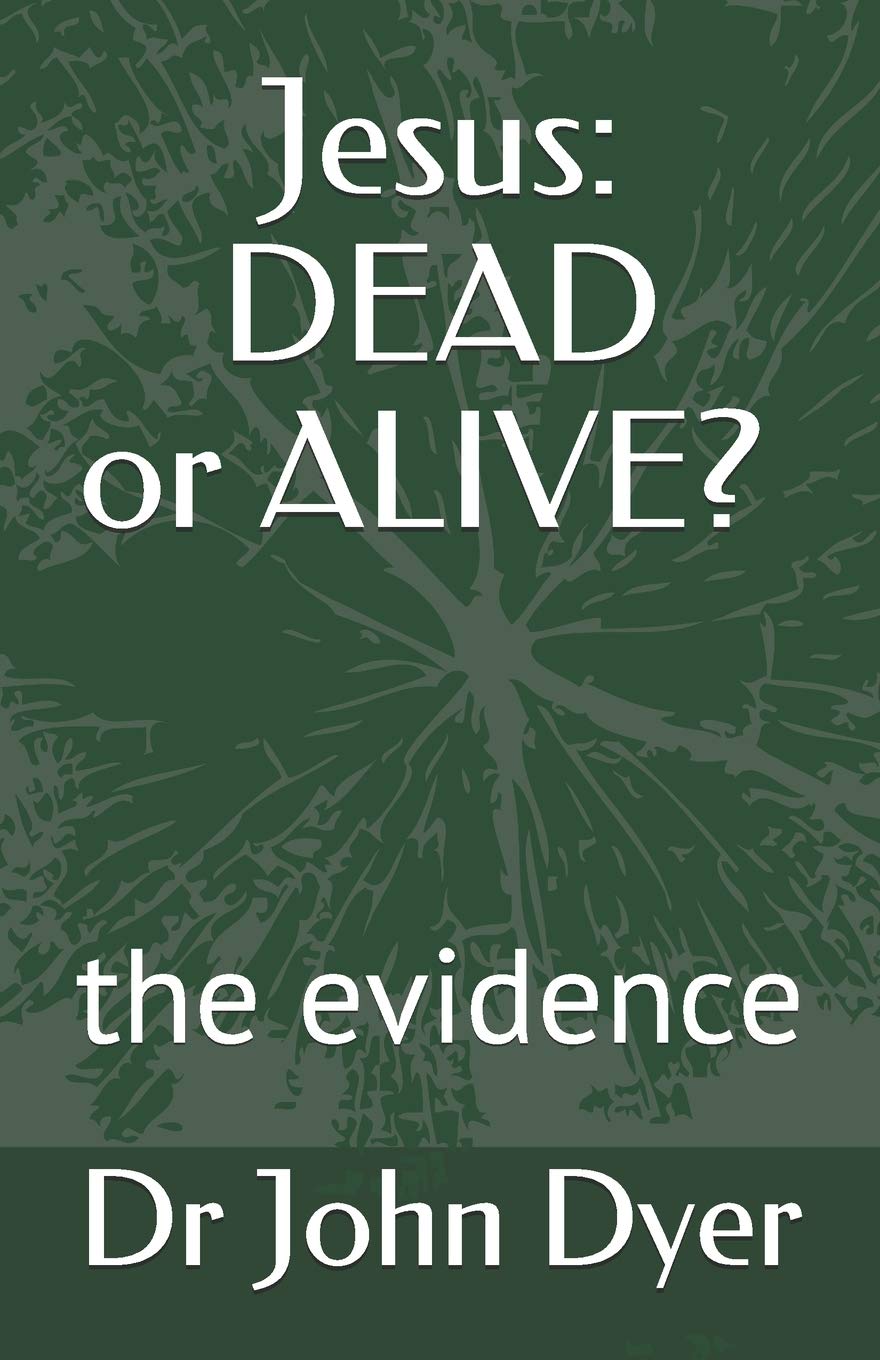Jesus: Dead or Alive? The evidence, by John Dyer
Former BMS Mission worker has given us a robust defence of belief in the resurrection - but in our post-modern culture, who is the book for?
 Jesus: Dead or Alive? The evidence
Jesus: Dead or Alive? The evidence
By John Dyer
Independently published via Kindle Direct Publishing
ISBN: 9781096409717
Reviewed by Philip Clements-Jewery
Now retired after long and distinguished service with BMS World Mission in Brazil, John has addressed himself to considering the evidence for the resurrection of Jesus. He is not, of course, the first to do so and the bibliography at the end of the book mentions others who have trod the same ground.
The arguments are familiar: given that the event of Jesus rising from the dead was without human witness, the evidence can only be circumstantial and falls under three main headings - the disappearance of the body of Jesus, his reappearance to the apostles, and the appearance of the Church. That Jesus truly rose from the dead is the best possible explanation of the evidence as it stands. Many other defenders of the truth of the resurrection have argued in similar terms. The classic expression of this is found in Frank Morison’s Who Moved the Stone?
So why do we need another book on this subject? The merit of this book is that although it is written from a theologically conservative standpoint it is not afraid to take seriously the apparent discrepancies between the New Testament witnesses, attributing these to the different theological viewpoints of the Biblical writers. But this raises the question as to whom this book is for. It would be useful, I guess, for Christian believers to help counter the arguments of the not-yet believers with whom they are engaging. It could also be a book to place in the hands of those who have questions about the Christian faith.
But there may be a problem about this and a deeper issue at stake. The people of New Testament times were pre-modern in their outlook and did not think in the same way as we do. What the modern rational mind might consider to be contradictions or discrepancies between the various Gospel accounts would not at all be considered as such by pre-modern people in the first century. However, the kind of arguments found in books like this belong very much within the rationalistic (modern) worldview of the Enlightenment. (It is noteworthy that a majority of the works mentioned in the bibliography belong to the era of the 1950s and 60s). We may need, therefore, to be careful about applying modern rationality to the thinking of 1st century people.
Furthermore, the culture in which we live today is postmodern. Truth has become relative and a matter of personal choice. To argue people into faith has become problematic. As the author recognises, a personal encounter with the risen Christ, mediated through the testimony of the church down the ages, may prove more persuasive. In a postmodern era, therefore, the best approach may be to invite people to ‘suck it and see’ and try things out for themselves in the context of a community of other seekers, which is what the Alpha Course, among others, seeks to offer.
Despite such reservations, John has given us a robust defence of belief in the resurrection and can be commended for it.
The Revd Dr Philip Clements-Jewery (retired Baptist minister living in Huddersfield and a contemporary of the author at Spurgeon’s College)
Baptist Times, 07/05/2021